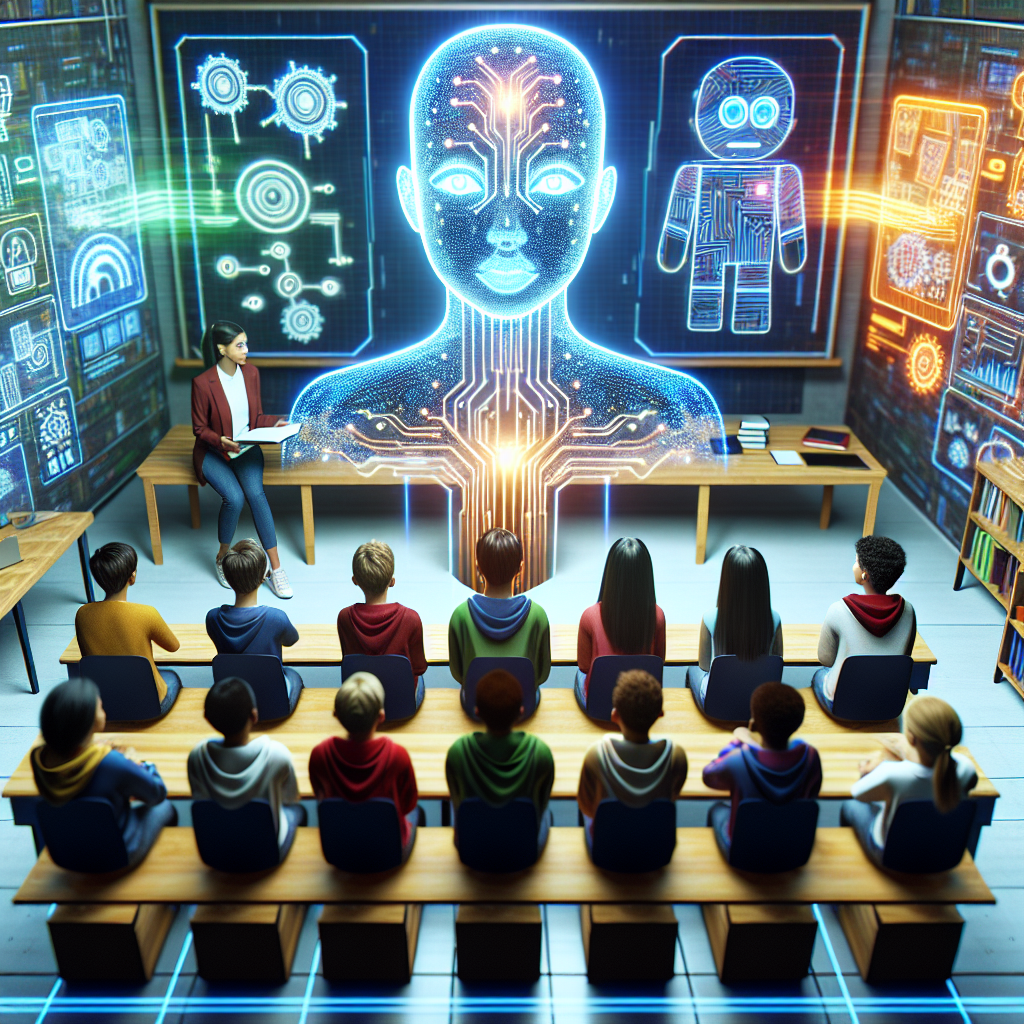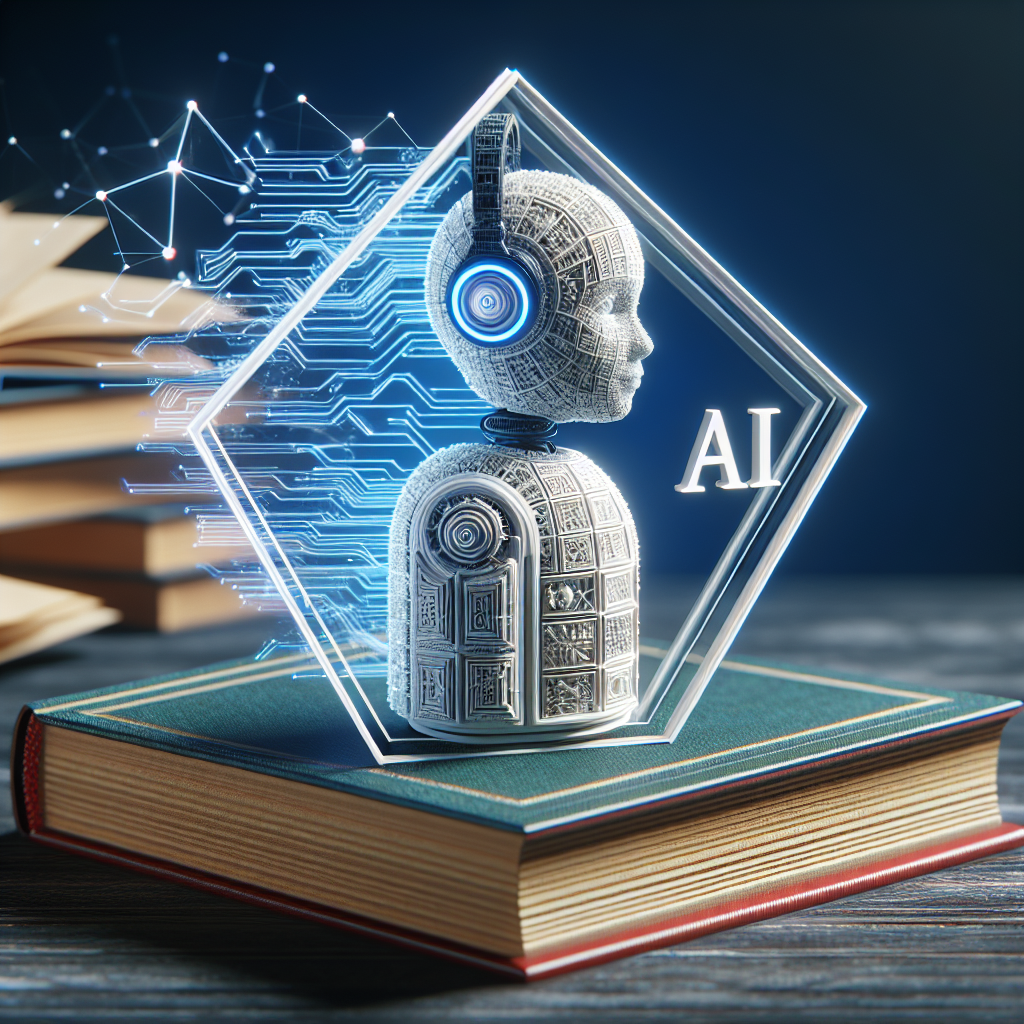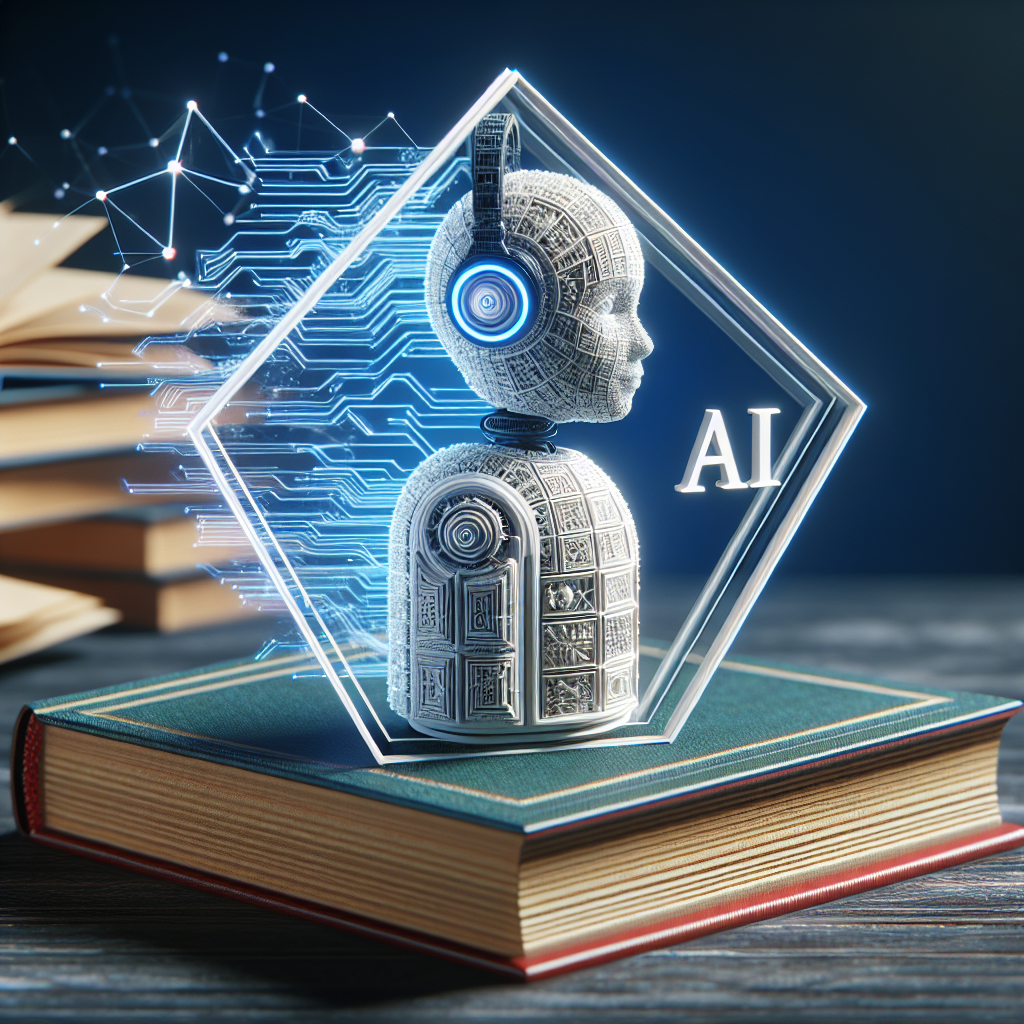Imagine a world where teachers have superpowers, students have personalized learning experiences, and educational institutions have unprecedented insights into student progress. This is not the stuff of science fiction; it’s the potential that Artificial Intelligence (AI) holds for the field of education. AI has the ability to revolutionize how we teach and learn, offering a range of applications that can enhance educational outcomes and foster a more engaging and effective learning environment. From adaptive learning platforms to intelligent tutoring systems, AI is paving the way for a new era of education that is tailored to the unique needs and abilities of each individual learner. In this article, we will explore the various AI applications in education and the exciting possibilities they hold for the future of learning. AI applications in education refer to the use of artificial intelligence technology in various aspects of the educational system. AI has the potential to revolutionize education by providing personalized learning experiences, smart content, intelligent tutoring systems, automated grading and feedback, virtual assistants, data analysis, adaptive learning, gamification, enhanced accessibility, and early identification of students at risk. These applications aim to enhance the learning process, improve student outcomes, and make education more engaging, efficient, and accessible for all learners. Let’s explore each of these AI applications in more detail.
Personalized Learning
AI-powered personalized learning is a groundbreaking approach that tailors educational experiences to individual students’ needs and preferences. By analyzing vast amounts of data about a student’s learning style, strengths, weaknesses, and interests, AI algorithms can create customized learning paths and provide targeted resources, activities, and support. This personalized approach helps students to learn at their own pace, focus on areas that need improvement, and explore topics of interest, ultimately leading to better learning outcomes.
Smart Content
AI can transform traditional educational content into smart content by using natural language processing and machine learning algorithms. Smart content is interactive, adaptive, and responsive, enabling learners to engage with the material in meaningful ways. For example, textbooks can be enhanced with multimedia elements, interactive quizzes, and simulations that allow students to explore concepts and apply their knowledge in a hands-on manner. Smart content can also provide real-time feedback and recommendations based on learners’ progress, helping them to understand and retain information more effectively.
Intelligent Tutoring Systems
Intelligent tutoring systems (ITS) leverage AI technology to provide personalized guidance, support, and feedback to students. These systems act as virtual tutors, diagnosing students’ knowledge gaps, adapting the instruction to their individual needs, and providing targeted feedback as they progress through the material. ITS can simulate one-on-one interactions with a human tutor, making the learning experience more engaging and tailored to the student’s unique learning requirements.

Automated Grading and Feedback
AI-powered automated grading and feedback systems streamline the assessment process, saving teachers’ time and providing students with rapid and constructive feedback. Machine learning algorithms can analyze students’ written assignments, quizzes, or exams to evaluate their performance, identify common mistakes or misconceptions, and provide feedback on areas that need improvement. This automated grading process allows educators to focus on providing individualized instruction and support, rather than spending hours grading papers.
Virtual Assistants
Virtual assistants are AI-powered chatbots or voice-activated systems that can answer students’ questions, provide guidance, and offer information in real-time. These virtual assistants can be integrated into learning platforms, websites, or educational apps, acting as personal tutors available around the clock. Students can ask questions, seek clarification, or request additional resources, and the virtual assistant can provide immediate responses or direct them to relevant information. Virtual assistants help to enhance students’ learning experiences by offering instant support and enabling self-paced learning.

Data Analysis
AI technology enables the collection and analysis of large volumes of educational data, including student performance, learning behaviors, and preferences. By analyzing this data, AI algorithms can identify patterns, trends, and insights that can inform instructional strategies and decision-making. For example, data analysis can help educators identify areas where students are struggling, evaluate the effectiveness of specific teaching methods or interventions, and develop data-driven strategies to improve student outcomes. Data analysis also allows for early identification and intervention with students at risk, helping them to get the support they need to succeed.
Adaptive Learning
Adaptive learning systems use AI to tailor instruction and resources to students’ specific needs and abilities. These systems continuously assess students’ progress, adapt the difficulty level and pace of instruction, and provide targeted interventions, ensuring that each student receives the individualized support required for optimal learning. Adaptive learning platforms can deliver personalized content, suggest customized study plans, and track students’ progress, creating a personalized and engaging learning experience that caters to their unique strengths and challenges.
Gamification
AI can introduce gamification elements into the educational experience, making learning more engaging, motivating, and enjoyable. Gamification uses game design principles, such as challenges, rewards, and progress tracking, to create interactive and immersive learning environments. AI algorithms can analyze students’ progress, identify areas where they need additional practice, and provide personalized game-based activities and assessments. By incorporating gamification, AI can transform education into a fun and interactive experience, encouraging students to actively participate and remain motivated.
Enhanced Accessibility
AI applications can enhance accessibility in education by providing equal learning opportunities to students with disabilities or diverse needs. AI-powered tools can assist students with visual or hearing impairments, learning disabilities, or language barriers by providing real-time captions, text-to-speech functionalities, or adaptive interfaces. For example, AI-enabled speech recognition technology can transcribe lectures for students who are deaf or hard of hearing, while natural language processing algorithms can provide real-time translation for students who are non-native speakers. By increasing accessibility, AI helps to create inclusive learning environments where all students can thrive.
Early Identification of Students at Risk
AI algorithms can analyze educational data to identify students who are at risk of academic failure or dropping out. By analyzing indicators such as attendance, grades, behavior, or engagement patterns, AI can detect early warning signs and alert educators to intervene and provide targeted support. Early identification helps to prevent students from falling through the cracks and ensures timely intervention that can significantly improve their chances of success. AI-powered early identification systems enable educators to proactively support struggling students and implement appropriate interventions.
In conclusion, AI applications in education have the potential to transform the way we learn and teach. From personalized learning and intelligent tutoring systems to gamification and enhanced accessibility, AI offers innovative solutions that aim to enhance student engagement, improve learning outcomes, and make education more accessible and inclusive. By harnessing the power of AI technology, educators can create personalized and adaptive learning experiences that cater to the unique needs and preferences of every student, ultimately preparing them for success in the 21st-century workforce.
